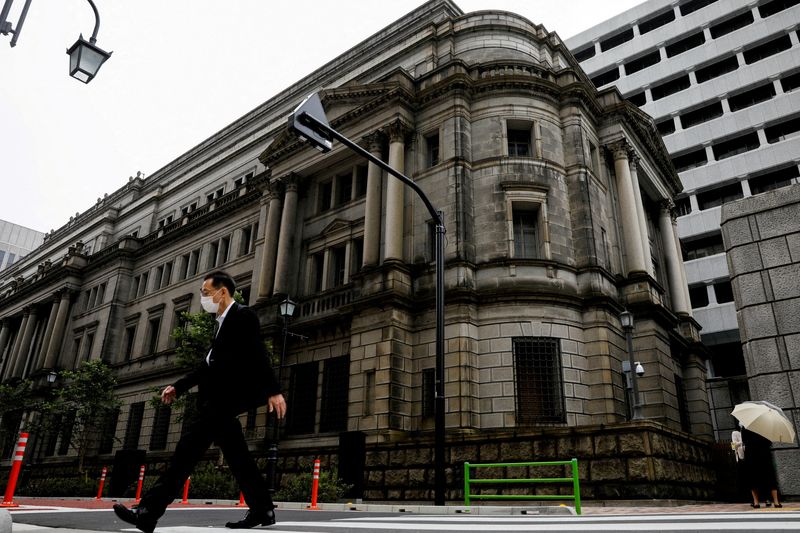Main events for today
2022.12.16 03:58
[ad_1]

Main events for today
Budrigannews.com – The Bank of Japan will be the last major central bank to hold a policy meeting this year. Emerging economies’ policymakers will also decide rates to celebrate the end of the year.
The condition of the U.S. real estate market is in center, while in Europe uncommonly chilly climate has raised worries of power blackouts and recharged tension about energy costs.
Here’s a look at the week ahead in markets from Kevin Buckland in Tokyo, Lewis Krauskopf in New York, and Dhara Ranasinghe, Naomi Rovnick, and Karin Strohecker in London as the markets consider the top trades for 2023.
Investors have attempted to identify pivot points for the central bank, and even the extremely dovish Bank of Japan has been targeted.
Some people have been encouraged to short Japanese government bonds ahead of Tuesday’s policy decision because of the shocking acceleration of Tokyo consumer prices to the fastest pace in 40 years. Rare indications from policy board members that it might be time to reconsider ultra-easy stimulus settings fueled speculation.
In any case, BOJ watchers say a shift won’t occur until Lead representative Haruhiko Kuroda ventures down in April following 10 years in charge. There are good reasons to slow down: Even though inflation is high, it is nowhere near what it is in the United States or Europe.
Additionally, nationwide CPI data will not be available until after Friday’s public announcement of the policy decision.
More European futures moved into restrained growth
The possibility of power outages as a result of a cold snap in Europe increases, which could exacerbate the effects of the energy shock and high inflation. It also puts Europe’s determination to conserve energy and lessen the economic impact of the Ukraine conflict to the test.
After governments in the European Union took action to build reserves in response to disruptions in Russian supplies, Europe’s gas storage is nearly 90% full. However, a series of nuclear outages, particularly in France, have raised concerns about power outages.
Germany is losing money to keep the lights on, and France is trying to prevent power outages.
While officials warn of possible outages and the French Banking Federation stated that cash machines would be affected, Emmanuel Macron asserts that it is absurd to worry that blackouts would cripple infrastructure.
The weather report should be taken into consideration by traders trying to determine how severe Europe’s economic slowdown will be.
As consumer prices fall, can the United States avert a recession?
On Tuesday, when data on existing home sales and housing starts are due, investors will get a fresh look at the world’s leading economy and inflation pressures. U.S. existing home sales fell for a record ninth consecutive month in October as mortgage rates rose, and single-family construction fell to a nearly two-and-a-half-year low.
The Conference Board’s consumer confidence survey, which fell to a four-month low in November, will be released on Wednesday. Following recent inflation data that came in lower than expected, the reading for the personal consumption expenditures index is also scheduled to be released on December 23.
A bunch of developing business sector national banks will check the finish to a year in which the scale and speed of rate climbs in creating economies hit long term highs.
In emerging Europe, policymakers in Hungary and the Czech Republic are scheduled to meet on Tuesday and Wednesday. At their previous meetings, both countries pledged to combat inflation while maintaining stable interest rates.
Both Indonesia, where the central bank recently added growth to its mandate, and Egypt, which is likely to receive support from the International Monetary Fund, are scheduled to meet on Thursday. Turkey, an anomaly, will make a decision the same day, but observers anticipate no change given that rates were lowered to single digits in advance of the election next year despite rising inflation.
‘Tis the season to be bullish about the year ahead, in any event on the off chance that you sell stocks professionally. Money managers, on the other hand, are clustering around lower-risk trades in anticipation of recessions in Europe and the United States.
Deutsche Bank surveyed investors (ETR:) cite a worse-than-expected recession as the cause of a 2.2% decline for the following year.
After a rout in 2022, many agree that inflation will ease, fueling enthusiasm for U.S. Treasuries and investment-grade corporate credit.
Emerging markets, which should also benefit from China’s relaxation of COVID-19 restrictions, have sparked optimism due to expectations of a softer dollar as the American economy slows. Cash supervisors are broadly wagering on the yen against the dollar, as hypothesis mounts that the BoJ will get away from its super timid money related arrangements.








